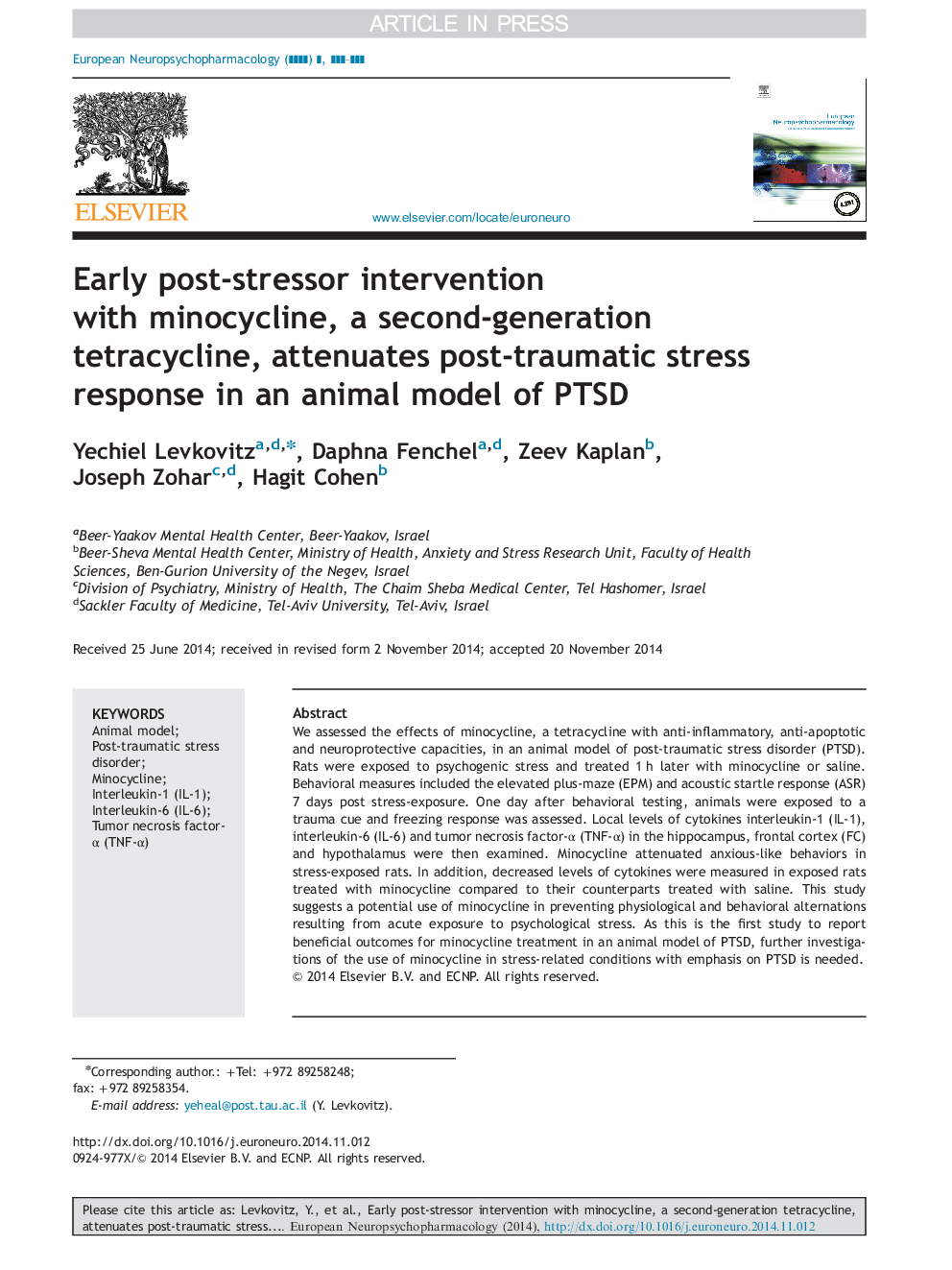| Article ID | Journal | Published Year | Pages | File Type |
|---|---|---|---|---|
| 10298677 | European Neuropsychopharmacology | 2015 | 9 Pages |
Abstract
We assessed the effects of minocycline, a tetracycline with anti-inflammatory, anti-apoptotic and neuroprotective capacities, in an animal model of post-traumatic stress disorder (PTSD). Rats were exposed to psychogenic stress and treated 1 h later with minocycline or saline. Behavioral measures included the elevated plus-maze (EPM) and acoustic startle response (ASR) 7 days post stress-exposure. One day after behavioral testing, animals were exposed to a trauma cue and freezing response was assessed. Local levels of cytokines interleukin-1 (IL-1), interleukin-6 (IL-6) and tumor necrosis factor-α (TNF-α) in the hippocampus, frontal cortex (FC) and hypothalamus were then examined. Minocycline attenuated anxious-like behaviors in stress-exposed rats. In addition, decreased levels of cytokines were measured in exposed rats treated with minocycline compared to their counterparts treated with saline. This study suggests a potential use of minocycline in preventing physiological and behavioral alternations resulting from acute exposure to psychological stress. As this is the first study to report beneficial outcomes for minocycline treatment in an animal model of PTSD, further investigations of the use of minocycline in stress-related conditions with emphasis on PTSD is needed.
Keywords
Related Topics
Life Sciences
Neuroscience
Biological Psychiatry
Authors
Yechiel Levkovitz, Daphna Fenchel, Zeev Kaplan, Joseph Zohar, Hagit Cohen,
